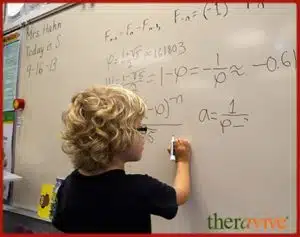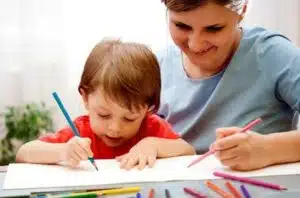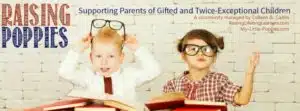2e children
Kenny is an eight-year-old boy who is extremely articulate and prolific when he tells stories. He can repeat word for word to his mother what an article in the newspaper said, after only reading it once. Kenny soars high above grade level when taking history exams and has never gotten one word wrong on a spelling test.
Yet Kenny has trouble following simple directions, struggles to open buckles and tie his shoes. Kenny has both a gift and some sort of disability and his parents are confused when they hear, they have a ‘twice exceptional’ child.
Who is the twice exceptional child?
The term twice exceptional (2e) is a relatively new term which was coined in the 1990’s to explain the subset of children who display extreme “giftedness” but also struggle with a disability.
Twice-exceptional children are extremely gifted in certain areas (math, reading, creativity etc.) but also struggle with disabilities (autism, Aspergers, ADHD, dyslexia, learning disorders etc).
Some 2e children are talented in math while others are able to memorize everything they read or see. Some 2e children have dyslexia while other 2e children are on the autistic spectrum. As you can see, there is no clear-cut picture or example of the typical 2e child— which is why it is hard to determine how many 2e children there are.
Describing a 2e child
Many 2e children display advanced vocabulary and have advanced levels of ideas and opinions. 2e children are generally curious, creative and have a knack for problem-solving. Also, many 2e children have strong interests outside of school which may relate to their giftedness (ex: interest in mechanics).
However, 2e children can have trouble socializing with peers and be extra sensitive to any criticism. 2e children may also struggle in academic areas they are not gifted in and lack organizational and study skills.
Tips for Parents raising a twice exceptional child
If you are raising a twice-exceptional child, you face the challenge of both addressing the disability as well as the highly gifted aspect of your child (both equally important to understand). Many times, children’ disabilities will overshadow their strength and these children will not get the education they need to meet their level.
One great advice for parents is to play up to your child’s strength. Try to work with the school or gifted program your child may be in to discuss how to implement your child’s strength to enhance his or her education.
Your child should feel proud of his or her gift and by creating educational programs designed to highlight this area, your child is more likely to feel confident and excel at school. For example, if your child is gifted at math, he or she may be well above grade level in that subject. Create an IEP which challenges this skill so your child’s gift does not go unnoticed or not practiced.
On the other hand, there are 2e children whos giftedness overshadows their disabilities and they do not receive the proper support they need for social or attentional deficits. Many 2e children struggle socially and having them attend social skill groups can really help them relate to peers and adjust to school.
Parents can also organize meet-ups with other 2e children as it can be hard for 2e children to relate to peers their own age. While 2e children are advanced intellectually, socially they are behind their age group.
Am I a 2e adult?
Twice-exceptional is a new concept and research and clinical interest in this group are advancing more and more each day. There are many adults walking around today who are twice exceptional but never received the proper treatment and support.
Some adults notice similar patterns in their children (gift and disability) and began to realize they have these qualities as well. Or sometimes, adults never struggled with certain attentional challenges until they grew up and started a family or advanced in their career.
If you are an adult who suspects you maybe twice exceptional, schedule an appointment with a psychotherapist or doctor who specializes in twice exceptional. It is never to late to treat a disability or to advance an exceptional talent.
Twice-exceptional children and adults should feel proud of who they are and be reminded of their incredible gifts and the amazing contributions they can make to this world!



